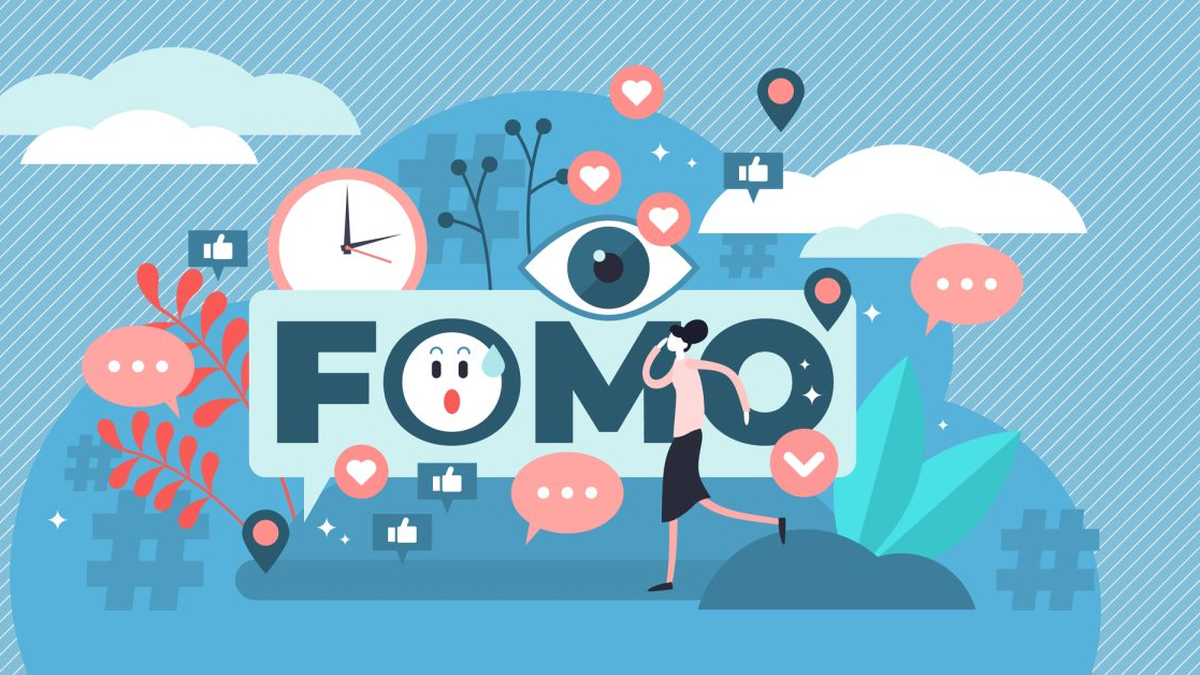He digital world accelerates its pace every day, and with it, the phenomenon known as FoMO (Fear of Being Left Out) becomes stronger, highlighting a modern insecurity that intensifies our perception of being permanently on the margins. In this context, the social networks They become a fertile field where our anxiety grows to always be connected and aware, fearing losing something that others enjoy or achieve.
Human beings have always sought to belong and be recognized, aspiring not to be excluded from the valuable experiences that define our societies. However, this desire has taken on a new dimension with the arrival of digital age. Originally, news and events were transmitted orally in small circles, but with the invention of the printing press and later mass media, our world expanded dramatically, as did our awareness of the multiple experiences around us.
The 21st century and the digital revolution have marked a milestone in this sense, especially with the emergence of social networks, exponentially expanding our window to the world. This hyperconnection has transformed what was once a mild concern into a constant and omnipresent pressure, fueled by the continuous visualization of lives that seem more exciting and complete than our own.
Today, FoMO goes beyond the fear of missing out on social events; reflects an internal struggle to find validation and meaning in a world full of options. We face crucial questions: Does the fear of making wrong decisions prevent us from enjoying what we choose in our work or professional career? Are we chasing titles not out of passion but out of fear of falling behind our benchmarks?
social networks.jpg
PEXELS
Social networks like LinkedIn, TikTok and Instagram They have become clear examples of how FoMO shapes different aspects of our lives.
In LinkedInFor example, do we find ourselves constantly comparing our professional performance with that of our colleagues, feeling pressure to not measure up?
In TikTokDo we participate in challenges or trends that consume a lot of time and generate anxiety and a feeling of emptiness?
In instagramDo we feel the need to show and post even if that makes us reveal aspects of our privacy and causes us to check our cell phone more times and the number of likes we receive?
This constant comparison and the need to appear successful can distort our perception of what we truly value, leading us to overestimate what we don’t have and underestimate our own experiences and achievements. Professionally, this can manifest itself in constant job dissatisfaction or the relentless pursuit of opportunities that seem better just because they are different.
FOMO is not just a cultural or social phenomenon; It has tangible and profound repercussions on our mental health and emotional well-being. From a scientific perspective, understanding these consequences allows us not only to measure the scope of the problem but also to seek effective solutions.
- Anxiety and depression: As we are bombarded with images of seemingly perfect lives, it is easy to fall into the trap of feeling like our lives are insufficient. This constant cycle of comparison and perception of inadequacy can deteriorate our mood and self-esteem, fostering feelings of sadness and anxiety.
- Sleep Disturbances: FOMO can also affect our sleep patterns. The need to be constantly connected and the fear of missing out can lead many to check their mobile devices late into the night, interfering with adequate rest.
- Academic and Work Performance: The dispersion of attention is another notable consequence of FOMO. Concern about what happens on social networks can reduce the concentration necessary for academic or work tasks, negatively impacting performance.
- Relationships: The preeminence of virtual interactions over in-person ones can weaken emotional ties, since the quality of the time shared is compromised by the constant distraction of our devices.
Reflection is crucial to unraveling the complexities of FoMO. We must constantly ask ourselves if our decisions are based on our real wants and needs or if we are being driven by the fear of missing out. Recognize and understand how FoMO influences our lives can be the first step towards a more authentic and satisfying lifestyle, learning to value the present more than the constant anxiety about the future.
In this digital context, it is essential to adopt a more conscious and critical relationship with social networks. This includes recognizing the selective and often misleading nature of what is shared on each platform. Human beings need approval and acceptance, and comparison with others plays a crucial role in self-evaluation.
If we spend hours looking at posts that lead us to think that others are happier, more successful and perform better in life, it will probably negatively affect our self-concept. Our algorithm has a great mission: to keep us online as much as possible; In turn, excessive use of social networks affects self-esteem and encourages social comparison between people.
Understanding these consequences is vital to seeking effective solutions that allow us to manage this phenomenon in a healthy and balanced way, enjoying the benefits of technology without it dominating our emotions and relationships.
Doctor in Psychology, specialist in neurosciences and online therapy.
Source: Ambito
David William is a talented author who has made a name for himself in the world of writing. He is a professional author who writes on a wide range of topics, from general interest to opinion news. David is currently working as a writer at 24 hours worlds where he brings his unique perspective and in-depth research to his articles, making them both informative and engaging.




